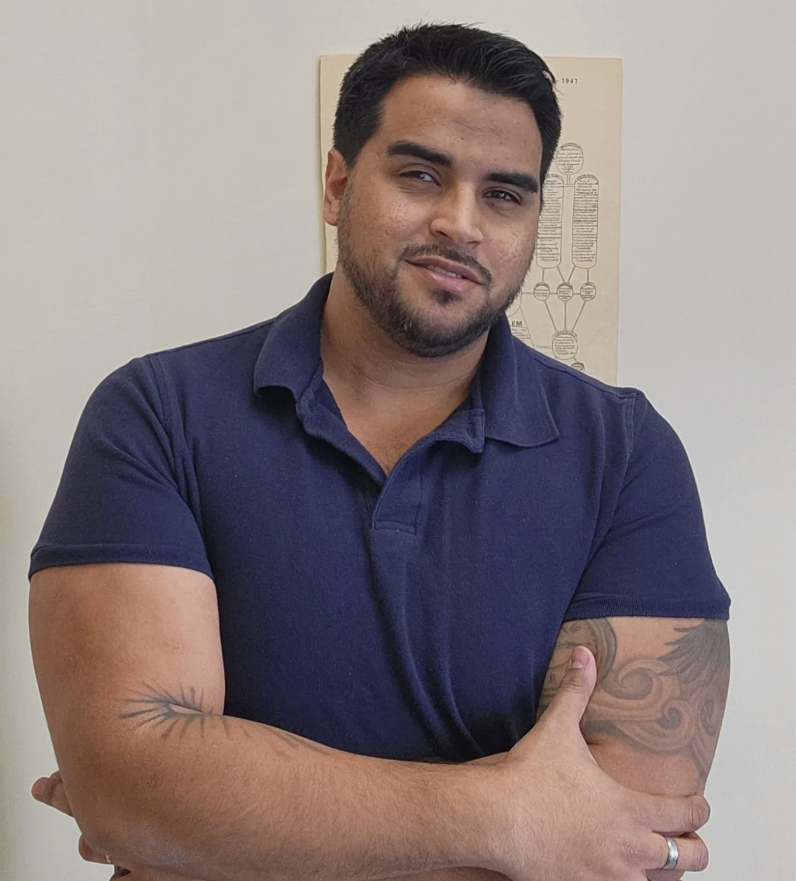Why Philosophy? Eli Benjamin Israel
Eli Benjamin Israel is interviewed by Céline Leboeuf.

Why Philosophy?
Eli Benjamin Israel
interviewed by Celine
What is philosophy to you?
In a post-conference beer in Munich last summer, someone brought up that common saying that therapists become therapists to figure out what’s wrong with themselves, and how it is similar with philosophers, particularly for those of us doing ethics. I think it’s very much like that in my own case. I often find myself struggling with what is the right thing to do, balancing duties and wants, and my interests with those of others, and so, philosophy is for me a useful way of exploring these questions, possibly leading to making better decisions, and hopefully hurting less. I particularly like the potential publicity of it, embedded in publishing papers and engaging in discussions with others, so that whatever answers we find to help us be better can perhaps be guiding for others.
How were you first introduced to philosophy?
When I was seventeen, my brother was becoming more religious and decided to leave Art School where he was studying to be an animator to join a Yeshiva and study Torah. In an attempt to share his intellectual journey with me, he gave me a book called Da’at Tevunot (“Knowing the Reasons”) by Moshe Chaim Luzzatto, an 18th-century Italian rabbi and philosopher. It’s a fascinating piece, really, and was my first encounter with philosophical reasoning. I specifically recall Luzzatto’s argument that free will is merely a result of ignorance and his conclusion that in the “world-to-come,” there would be clarity of truth, and thus, no free will whatsoever. I was terrified by that thought, and perhaps it was the starting point of my departure from religion, as well as my journey into philosophy.
How do you practice philosophy today?
I teach and write, of course, but I think a characteristic aspect of my way of doing philosophy is that I treat it as a communal effort. I’m not one for the solitary philosopher holed up in a garret. My office door is always open, and faculty and peers frequently drop by to discuss our ideas, and it often gets loud. I think it keeps my thinking grounded, attuned to the intuitions of others, especially in the early stages of idea development. Most importantly, it helps me in making sure that whatever I have in mind is actually interesting to other people, not just to myself.
What is a philosophical issue that is important to you?
I think consent is a super important, and yet tricky concept that we still need to do a lot of work around, especially since the confusion about what it means and what it takes for it to be expressive of a person’s autonomy too often causes serious harm, especially in intimate relationships. I also think that it’s especially important for men to be part and allies in this conversation, not in a defensive way, but as part of an effort to be more ethical partners.
In my writing, I advocate for how consent, being constitutive of many joint actions, should be thought of not as something one gives, but as a state that the participants in an activity build together. This emphasizes the duties we have as consent-receivers, requiring us to be in the right state and foster the necessary skills to align our actions with our partners’ will.
What books, podcasts, or other media would you recommend to anyone interested in philosophy?
A short book I often recommend to outsiders interested in what philosophy is about, especially in the analytic tradition, is Tom Nagel’s “What Does it All Mean?” which gives a great (and much accessible) introduction to some central questions we are occupied with.
For those within the profession—for leisure, I often listen to “The Panpsycast” podcast. They somehow manage to tailor serious philosophical discussions and interviews with a fun tone that I really like. For work, though, I recommend Sebastian Watzl’s book, “Structuring Mind,” which is not only a well-written analysis of attention, but it is of a systematicity that I find admirable and extremely rare these days. It really influenced the way I think about our moral sensitivities, and I think the book is of worth to people working in all different fields—from mind and ethics, to epistemology, metaphysics, and phenomenology.
This interview of Eli Benjamin Israel was first published at Why Philosophy?
Eli Benjamin Israel is a philosophy PhD student at Temple University, specializing in ethics, moral psychology, and social and feminist philosophy.

